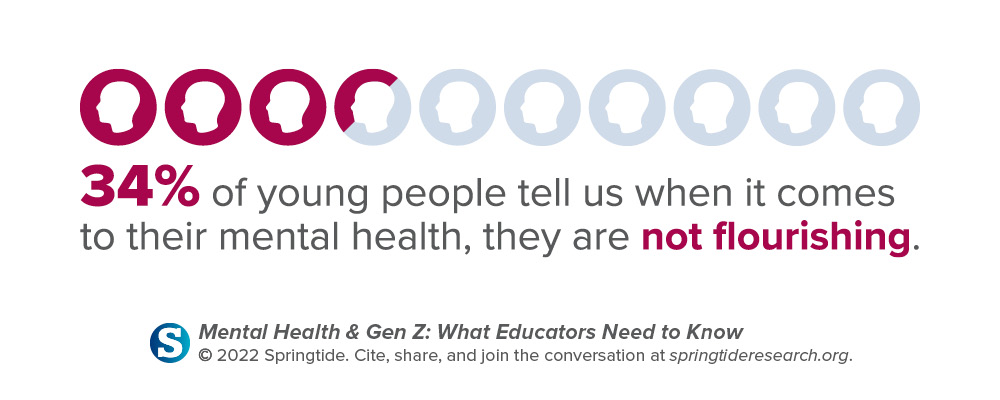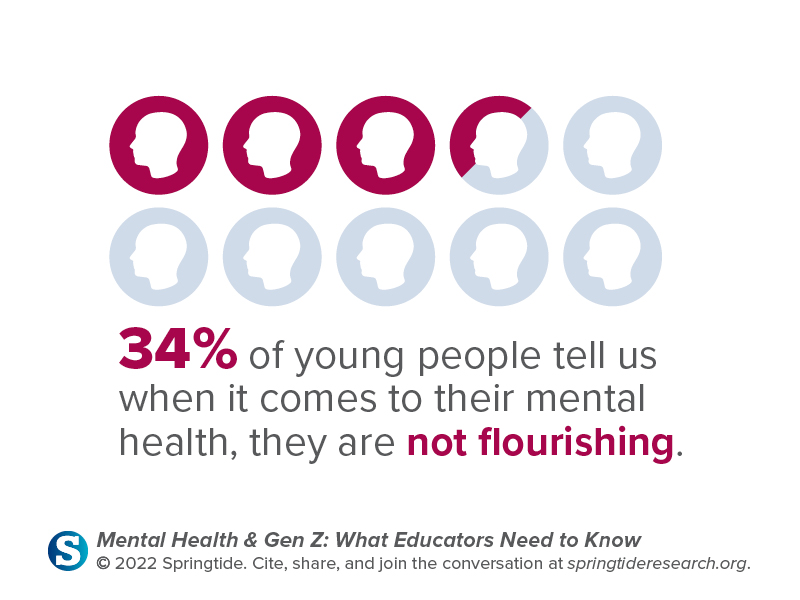
Why Schools Need Connection, Expectation, and Purpose
Please enjoy this excerpt from our latest report on mental health and Gen Z in schools:
Creating Organizations That Are Mental-Health Friendly
Focusing on Connection, Expectations, and Purpose
The issues that impact young people’s mental health are broad, ranging from the macro (climate change, social media, stress from school, political polarization, a pandemic) to the personal (school, home, friends). The solution must engage this broad array of social issues. Noah, 24, articulates a concern that surfaced in our interviews; namely, that “there needs to be big structural changes” and that leaders can’t “just tell people to make individual changes” when it comes to improving mental health.
Noah goes on: “Adults, especially those who have money and the time to really campaign for something, should spend at least as much time doing that as they do trying to tell young people [to find support systems].” For Noah, the responsibility adults have is not just to mentor young people through their mental-health concerns, but to vote to expand health care or to lobby for financial accessibility around insurance premiums for mental-health care.


The national conversation about mental health is right in shifting away from the individual and the psychological—that is, what can one person be doing differently to improve their own mental health—and beginning to reframe the issue as a collective concern: What can organizations and groups be doing to better support the mental health of young people?
Organizations that create connection, foster alignment between tools and expectations, and help young people discover a sense of purpose are highly likely to succeed at promoting the mental health and flourishing of young people.
CONNECTION is about relationships. Within schools, strong connections lead to a sense of belonging. Our data show that for young people, sensing that they’re noticed, feeling named, and being known in school correlates with having a sense of belonging with mental wellness. Helping young people make connections that lead to belonging is a proactive way to mitigate mental illness.
EXPECTATIONS are the standards that young people feel pressure to meet or exceed in order to succeed. These can be explicit or implicit. If expectations at school are unachievable or unclear, young people will often judge themselves rather than the standards negatively, causing their mental health to suffer. Our data show that making sure young people have the right tools to meet expectations is a matter of clear communication and accessible resources.
PURPOSE at schools is about helping young people connect with something bigger than themselves. This can be a subject they’re passionate about, a community they’re involved with, a spiritual practice that grounds them, or more. Though fewer young people turn to religious institutions for conversations about meaning, they nonetheless need spaces that help them discover a sense of purpose.



